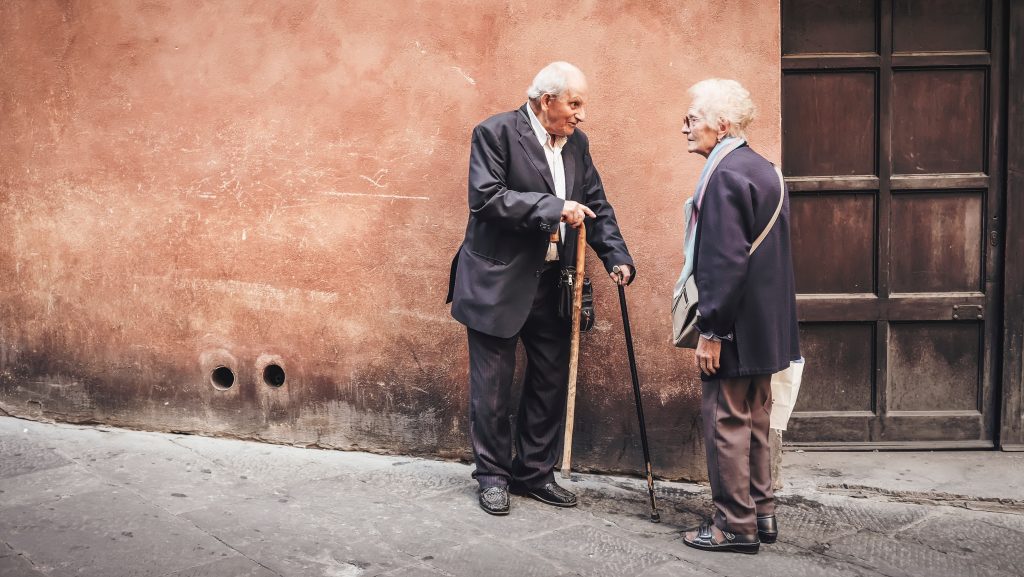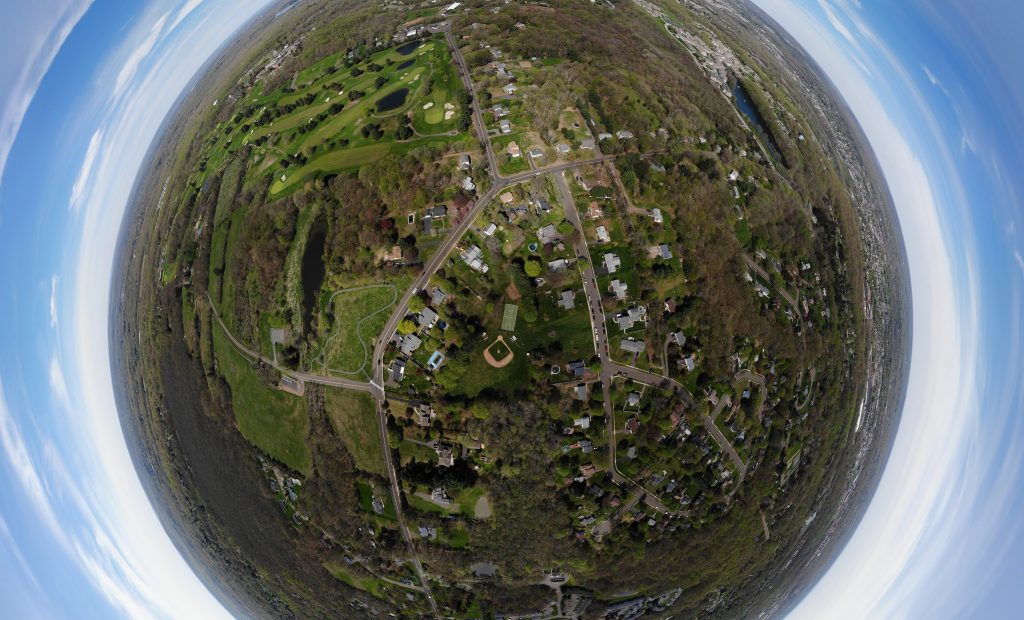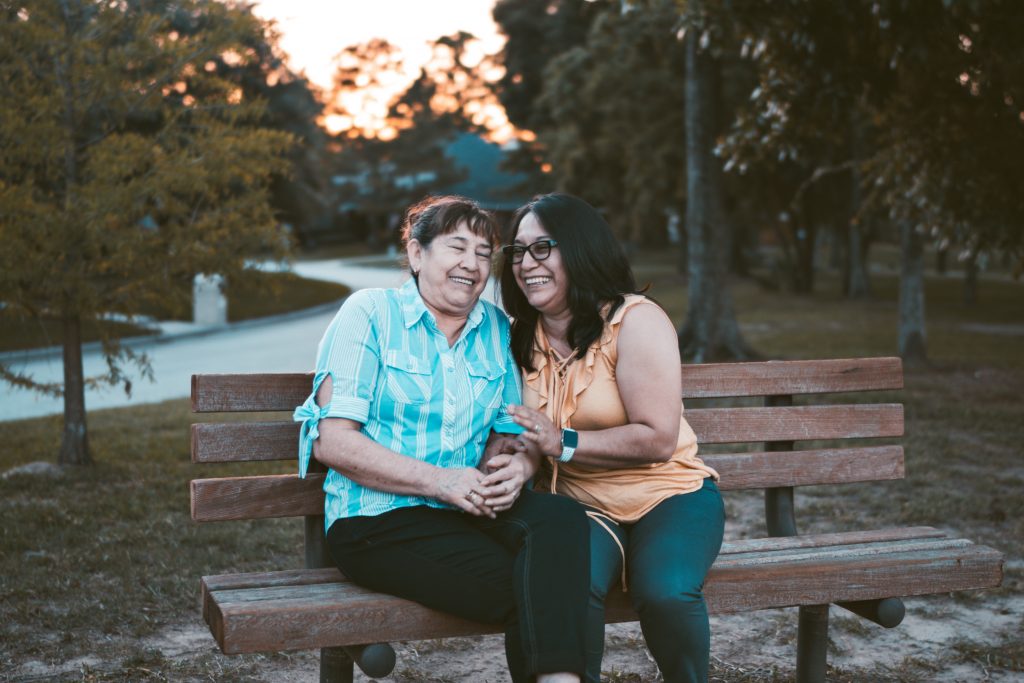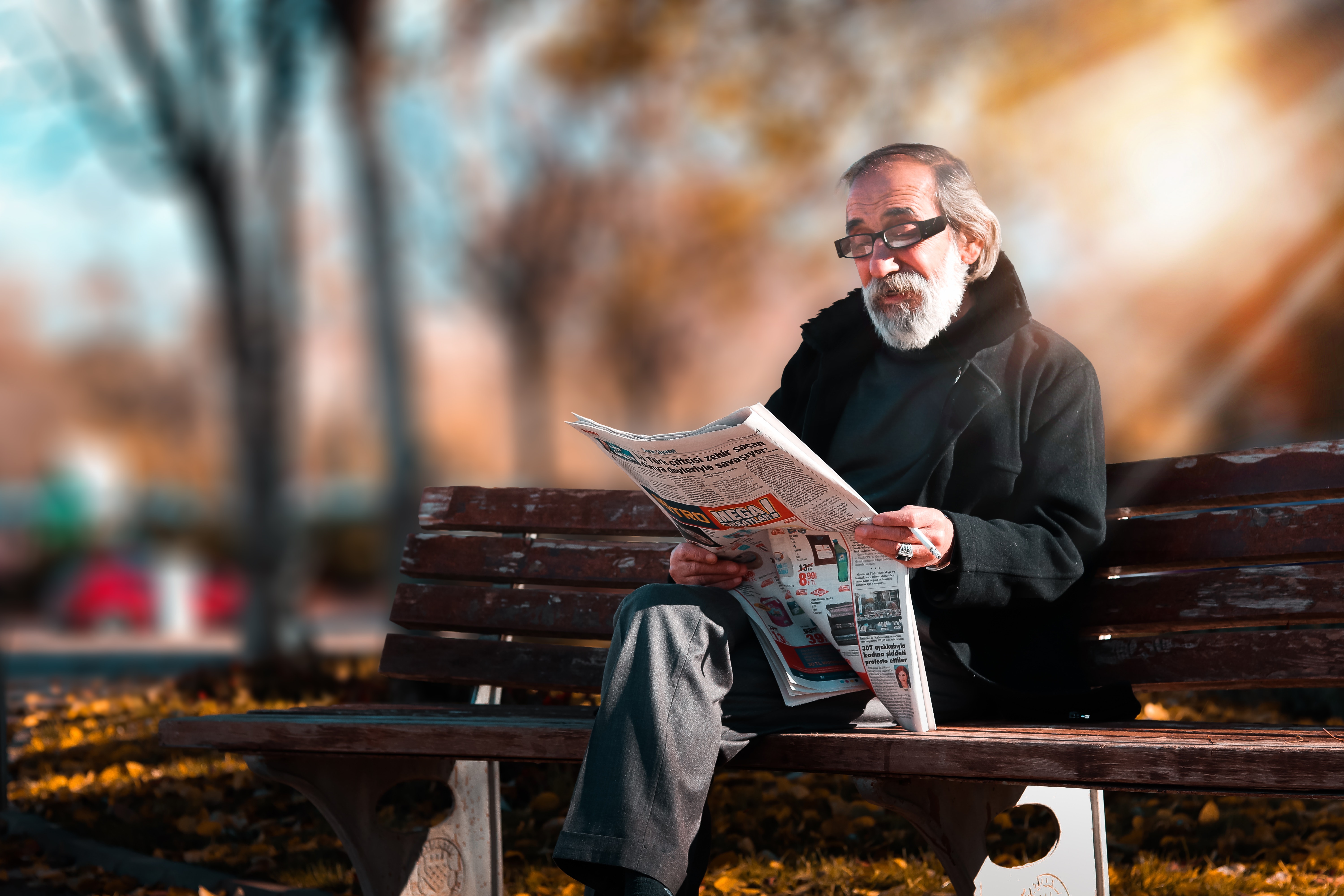“Why do they take the train during rush hour” or “why do they do their grocery shopping on Saturdays?” These seem like insignificant questions, but they’re ones we hear all the time.
They also come with a big assumption – that older people should organise themselves differently, so that other busy and productive people can make more efficient use of their time.
Some people might even go so far as to argue that this should be an act of intergenerational solidarity from older people. They suggest that the older generation should leave space free for working-age people, so they instead can access services and places when they’re not working.
“That’s the least they can do while workers are paying for their pensions”. Or so the argument goes.
Leaving Places For Important People To Use – Ring Any Bells?

Image Credit: Cristina Gottardi / Unsplash
Preventing people from freely using public spaces – or suggesting certain groups can only use them when ‘important people’ don’t want to is all too familiar.
A couple of decades ago, it was people of colour who were not allowed a seat on a bus if a white person wanted it. It was women who were refused the right to work because they would have ‘stolen’ the jobs of men. And it was working class people who were denied a right to vote or take office because they were supposedly incapable of doing so.
Stopping people because of their skin colour, gender, or social class sounds like another world today.
Estelle Huchet
The very idea of stopping people from freely participating in society because of their skin colour, gender, or social class sounds like another world today. We’re not perfect and there’s more to do, but, to a certain extent, the situation has improved. However, there is still a form of discrimination which remains largely unchallenged – it’s called ageism.
A Widespread Problem Across Countries

Image Credit: Tim Bish / Unsplash
Some 42 per cent of Europeans feel that discrimination due to old age is “very” or “fairly” widespread in their country. It might not seem like the biggest problem, but it’s exactly this which prevents older people from taking the tube whenever they want or doing their shopping at the weekend.
Perhaps I’m cynical, but the most dangerous part of ageism is our acceptance of it. It’s a sliding scale, of course, but, for the most part, it’s considered “alright” and opens the door for discriminatory treatment.
42 per cent of Europeans feel discrimination due to old age is widespread.
Estelle Huchet
Ageism hinders older people’s participation in society in so many ways: it creates barriers to access the labour market, to enjoy the diversity of goods and services, and to exercise civil and political rights.
In addition to older people’s untapped contributions to society, ageism has serious consequences for their health and well-being. It undermines their sense of autonomy and self-esteem, and increases the risks of depressions and mental illnesses.
Ageism is one of the root causes of abuse against older people, and, all in all, is a very bad deal for people’s rights and dignity. It’s a threat that, if we live long enough, we will all be at risk of experiencing one day.
‘Until Now, We’ve Lived In Denial Of Aging’

Image Credit: Dario Valenzuel / Unsplash
Given that growing old comes to us all, it’s somewhat odd that we continue feeding each other’s stereotypes with ageist jokes and arguments. We’re effectively paving the way to discrimination against our own future selves.
Until now, we’ve lived in this ambient denial of our own ageing. We’ve kept older people as a group set apart – these “others” – that we’ve never projected ourselves as being (or about to be) a part of.
The time has come to end this repetitive and inescapable fate.
Estelle Huchet
This denial perpetuates our misunderstanding of older people as one homogeneous group, burdening the rest of society. And who wants to think of himself or herself as a burden?
Now, the time has come to end this repetitive and inescapable fate. We need to call on governments and companies to do their share, but such pervasive discrimination requires much more than institutions taking a stand – it must be a constant and collective effort to challenge our own stereotypes and attitudes.
We’ve started the journey with #AgeingEqual, a 70-day campaign against ageism in a nod to the 70th anniversary of the Universal Declaration of Human Rights.
The campaign has already shed light on various examples of ageism: in our language, in our laws, in health policies, in court decisions, and in statistics, to name but a few.
It must be a constant and collective effort to challenge our own stereotypes and attitudes.
Estelle Huchet
It gathered the testimonies and life stories of older women who dare, of people struggling as they age in a host country, of older gay people determined not to go back to the closet, of self-advocates ageing with dementia and activists of the intergenerational cause.
You may relate to one of these stories – or you may not. But we must all be reflective about our own misconceptions and paternalistic reflexes.
And as we go through the holiday season, beware: the love for older parents and friends does not protect from well-intentioned ageism…






